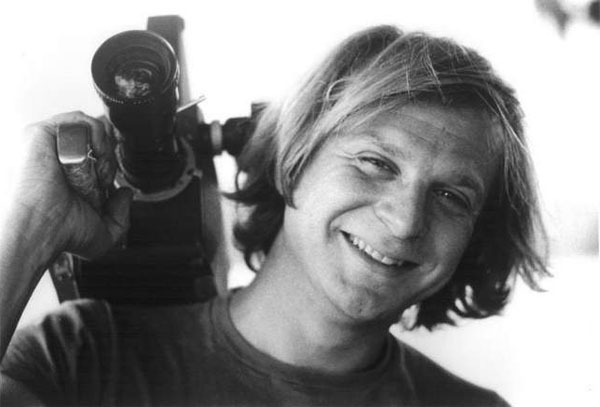“Documentary filmmaker Ed Pincus, who helped define the notion and expand the possibilities of the personal documentary, died yesterday in Vermont, according to a Facebook post by Vermont Public Television,” reports Paula Bernstein at Indiewire.
Just last year, New York’s Film Society of Lincoln Center presented a three-day retrospective, Life and Other Anxieties: The Films of Ed Pincus: “Insightful and ever-surprising, the films directed or co-directed by Ed Pincus mark the transition between the more issue-oriented tendency of American documentary in the early 60s and the more personal approach that characterized work in the 70s and beyond. Pincus’s first film, Black Natchez, co-directed with David Neuman, chronicled in exciting detail the struggle for voting rights in a sharply divided southern community. The team followed this with One Step Away, a portrait of a hippie commune that explored the growing gap between commune members’s stated ideals and their actual actions and relationships. With Portrait of a McCarthy Supporter, Pincus and Neuman looked at Pincus’s own father-in-law, a man whose contradictory politics, the film argues, revealed the ambiguity of Eugene McCarthy’s campaign for President. Yet it was with his next project, Diaries: 1971-1976 (completed in 1981), that Pincus really hit his artistic stride.”
Back to Paula Bernstein, who notes that the 200-minute Diaries “became an essential part of the personal documentary canon.” She points us to a piece that Caveh Zahedi wrote on Diaries for PBS last year: “That film has had a more profound effect on my own work than any other film I can think of. Because the film has been almost impossible to see, Ed Pincus has never received the recognition he deserves and his influence has mostly been felt through the influence of the filmmakers that he himself influenced. Diaries is the hidden source that feeds the river of personal documentary filmmaking and is, in many ways, that genre’s purest and most perfect expression.”
Ross McElwee on Diaries: “The unassuming title of this documentary belies what is, I think, one of the most remarkable nonfiction films ever made. For five years, Ed Pincus recorded episodes of his life with his wife, Jane, their two young children, and the several women with whom Ed had love affairs. It’s also a portrait of a particular era—the early 1970s, or perhaps, more accurately, the post-1960s—a time in which a willingness to experiment in life, love, and political expression, was still present, but in the culture at large, was on the wane.”
“Pincus’s ‘low profile’ after the mid-1970s was a result of a bizarre circumstance,” noted the Harvard Film Archive when it ran its retrospective in April 2012. “Dennis Sweeney, who had helped instigate the visit to Mississippi that produced Black Natchez, had become delusional and dangerous, and was threatening the lives of Pincus and his family. These were not empty threats: Sweeney would kill civil rights lawyer and U.S. Congressman Allard Lowenstein in his Manhattan office in 1980. In order to stay out of harm’s way, Pincus stopped making public appearances with his work and the Pincus family made their rural Vermont farm their permanent residence…. Pincus returned to filmmaking in 2005 when the aftermath of Hurricane Katrina and its socio-political implications drew Pincus into collaboration with Lucia Small on what became The Axe in the Attic (2007), a feature about the impacts of the disaster on New Orleans and New Orleanians and on the process of cinematically recording such events.”
Writing for Cinema Scope, Livia Bloom called Axe “one of the most challenging and unsettling American films of the year. Though the chaos can make rebuilding seem impossible, the film introduces people struggling gamely to reconstruct their lives against devastating odds. They welcome the filmmakers with open arms, open homes, and open tears—their dignity, humor, and hospitality improbably intact.”
Pincus leaves a work-in-progress he was making with Small, Elephant in the Room, originally conceived as a way of dealing with Small’s loss of three close friends. “Then, a year later, in 2011,” the filmmakers note at the site of their production company, Pincus & Small Films, “Lucia and her filmmaking partner Ed Pincus were discussing project ideas when he was diagnosed with a terminal illness (MDS, a leukemia-like disease). Ed had been encouraging Lucia to pick up her camera as a way to deal with her own grief and now Ed, eager to make a film again, most likely his last, agreed that this might be their topic.”
For news and tips throughout the day every day, follow @KeyframeDaily on Twitter and/or the RSS feed. Get Keyframe Daily in your inbox by signing in at fandor.com/daily.





